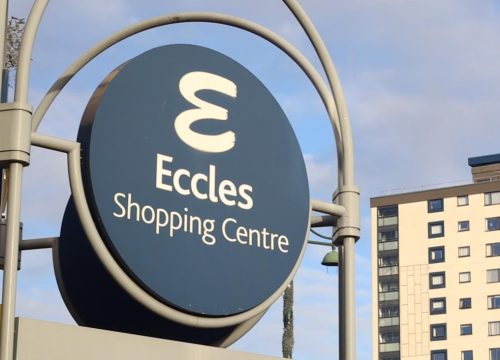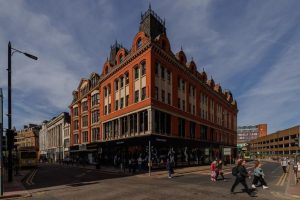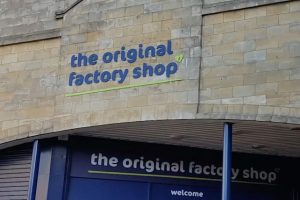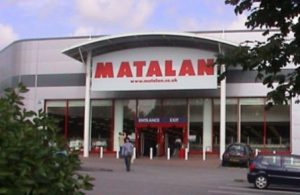High street hasn’t died, it has just evolved, says new report

New research by commercial real estate services firm, Avison Young, suggests Manchester’s retail sector is experiencing an upsurge in its bricks and mortar offering.
It claims that, after a decade of crippling uncertainty, the physical retail sector is showing signs of recovery with a swing back to bricks and mortar stores, with take-up across well-located high streets, prime retail parks and food stores picking up, driven by an increase in footfall.
Regionally, Manchester’s retail sector continues to show positive signs with increasing demand from retailers looking to open new stores and take advantage of cheaper rents in the city, which are still below 2019 levels.
The report reveals that, despite retail stock in the UK climbing after the challenge of changing consumer habits and the impact of the pandemic, vacancy on well-located retail stores are shrinking. Returning demand is further encouraged by high build costs that mean building new is not a viable option.
Key deals include Sephora’s return to the UK last year – it exited in 2005 – with Manchester opening doors to one of only three new stores in the country.
Bigger stores are also a feature, according to the report. The increase in take-up across well-located high streets, prime retail parks and food stores is notable.
New brands are taking larger flagships in iconic retail destinations and retailers want bigger spaces to grow their experiential-led offerings.

Trafford Centre
For example, Bury-based JD Sports is set to open its largest store to date next year, at 43,000 sq ft, in The Trafford Centre. It’s expected that the store will follow JD Sports’ highest performing location in terms of turnover, at Westfield Stratford, which includes digital features to improve customer experience.
Here, self-serve checkouts are available, or customers can pay for goods directly with staff members and the store also has space set aside to trial with new brand partners.
New developments include evolving the in-person experience. The sector has shown continued flexibility in adapting to the modern-day needs of consumers and there’s no doubt that it’s very different from what it once was.
Traditional retail pitches are becoming blended with food and beverage units, stores ever more experiential, curating a lifestyle destination for the public. Retail is returning to the leisure past-time it was first designed to be.
Retail parks and food stores have also been earmarked as an investor pick for 2024, with recent retail park sales attracting competitive bidding, notably from institutional investors.
Many have attributed this to the potential for change of use for well-located pitches, but, increasingly, retail values are strengthening and alternative uses becoming less viable, as retaining these for retail purposes becomes more appealing.
The social value of in-person retail is also increasing. Bricks and mortar is essential to the economy and communities. The role retail plays in providing destinations for the public, business and tourists alike, adds value to surrounding areas and encourages urban regeneration.
A new government brings a new dynamic for the future of physical retail, the report says.
The Labour Party’s proposed changes to the business rates system aim to create a fairer framework that supports physical retail, especially smaller businesses, while maintaining overall tax revenue neutrality.
Key elements include decoupling the business rates tax from inflation, making the tax burden more predictable and manageable for retailers.
The sector also advocates for reducing the Uniform Business Rate (UBR) to around 44p, implemented in a phased manner to mitigate immediate fiscal impact.
To offset reduced revenue from business rates, Labour suggests implementing an online sales tax, ensuring online retailers contribute more equitably.
Additionally, Labour proposes reviewing the business rates relief system to better support small and medium-sized enterprises (SMEs), which are crucial for physical retail. Transitioning to more frequent revaluations, potentially annually, would ensure business rates reflect current market values, providing a fairer tax assessment.
And, committed to further supporting SMEs, Labour aims to enhance small business rates relief, directly benefiting smaller physical retailers and helping them compete with larger chains and online retailers. These changes are intended to reduce the financial strain on physical retailers, create a balanced competitive environment, and ensure the tax system is fair and market reflective.

Barry Crichton
Barry Crichton, Principal & Managing Director of Avison Young’s Manchester office, said: “As one of the country’s biggest retail centres outside of London, it’s encouraging to see demand increasing across Manchester, with major brands recognising the city as a valuable retail destination.
“Outside of the city centre core, we’re seeing local authorities identifying underperforming retail sites that are prime spots for redevelopment and re-envisaging what retail looks like in these secondary markets.”
He added: “ In 2022, Salford City Council acquired Eccles Shopping Centre to enable redevelopment of the entire town centre, with a similar approach being taken in Wythenshawe, following the plans to transform the existing 1970s shopping centre and surrounding land into new cultural space, new shops, a new public square and up to 1,600 new homes.
“There has been a lot of talk of the ’death of the high street’, but these two projects alone show that it hasn’t died, it has just evolved.”








